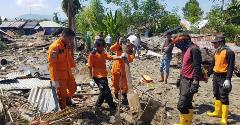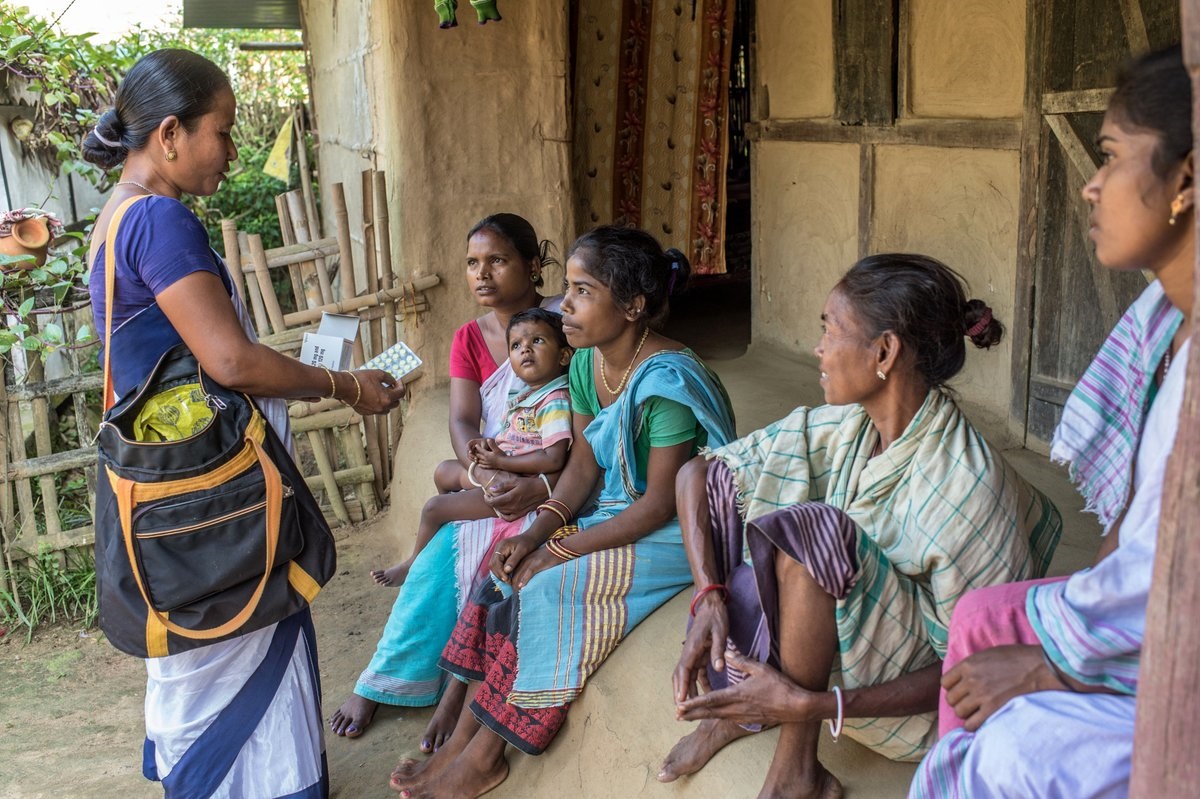Hours-long boat journeys over treacherous sea. Arduous treks across trying terrain. And days of painstaking planning to ensure all people eligible to be vaccinated are reached.
These are just a few of the challenges Maldives’ health workers faced while eliminating measles, a vaccine-preventable disease the country was verified to be free of in April 2017.
But according to Aminath Nasheedha, a vaccinator of more than 35 years’ experience, the most important factor in eliminating the life-threatening disease was creating a sense of community ownership and buy-in.
“Back in the 1980s measles was a growing threat. Parents did not support vaccines and would ignore the immunization schedule,” she says, explaining how Maldives’ Ministry of Health encouraged tri-monthly community visits to grow trust and confidence in vaccination across the atolls. “The victory over measles today owes a lot to the hard work done back then. Parents are a lot more aware now; they support immunization drives and adhere to immunization schedules.”
Country-wide enthusiasm for immunization is now well established. Since 1994, Maldives’ Ministries of Health and Education have insisted that completion of vaccination schedules be verified at school enrolment. Successive governments have considered vaccination a basic right. Media has been a willing partner for the dissemination of vaccine-positive messages, while community organizations have been active in campaigns to eliminate vaccine-preventable diseases broadly, and polio and measles specifically.
Dr Arvind Mathur, WHO Representative to Maldives, says vaccine acceptance was critical to Maldives’ success in eliminating measles three years ahead of the WHO South-East Asia Region’s 2020 target. “The campaign to eliminate measles provides a compelling example of how multi-sectoral and society-wide mobilization can further public health goals. Support for and participation in the campaign came from multiple ministries and sectors, and included business groups and a host of civic-minded organizations. Though technical capacity is – obviously – essential, community ownership and buy-in is a vital ingredient of success.”
Nashiya Abdul Gafoor, a Programme Manager at Maldives’ National Programme on Immunization, agrees. “We are all driven by the goal of being the first country in the Region to eliminate measles. As a final push we held a measles and rubella mass vaccination campaign in 2017. The campaign was inaugurated by President Abdulla Yameen Abdul Gayoom at his office, which was very motivating,” she emphasizes, before turning to the campaign’s long-standing strategy and vision.
First, she says, the programme focused on achieving and maintaining at least 95% vaccination coverage with two doses of measles and rubella vaccine through routine and supplementary immunization. Second, it sought to develop and sustain sensitive case-based surveillance that meets recommended performance indicators. Third, the campaign developed and maintained an accredited measles and rubella laboratory network. And fourth, it strengthened support and linkages across these areas, she says. As a demonstration of its total commitment, Maldives even recently held immunization drives for people up to the age of 25 who had not originally received the vaccine’s second dose.
According to Dr Poonam Khetrapal Singh, Regional Director for WHO South-East Asia, the strategies Maldives used will prove critical to eliminating measles across the South-East Asia Region.
“Eliminating measles and controlling rubella is a Flagship Priority Area in our Region. As Maldives’ achievement demonstrates, the strategies outlined in the regional Strategic Plan to Eliminate Measles and Control Rubella and Congenital Rubella Syndrome are sound, and can drive dramatic progress. All countries should adopt them,” she says.
Member countries have been taking note. In addition to Maldives, Bhutan was verified to have eliminated measles in April 2017. Two doses of measles-containing vaccine are now being provided in each of the Region’s 11 countries. 95% coverage of both doses – the level needed to establish herd immunity – has been achieved in five countries. At the start of 2017 rubella vaccine was part of a combination vaccine in eight of the Region’s 11 countries. It is now part of routine programmes in 10. In 2017 alone, 148 million children received the MR vaccine as part of mass campaigns in Bangladesh, India, and Indonesia.
“Progress across the Region is inspiring,” says Dr Khetrapal Singh. “In recent years we have achieved and maintained polio-free status and eliminated maternal and neonatal tetanus, while at the same time strengthening routine immunization programmes. Eliminating measles and controlling rubella by 2020 will build on these successes and accelerate health and wellbeing across the Region,” she says. “We can do it.”
As countries strive to achieve this vision, vaccinators across Maldives – including Aminath Nasheedha – can reflect on a job well done and an achievement well deserved. Success is theirs; success is Maldives’.







